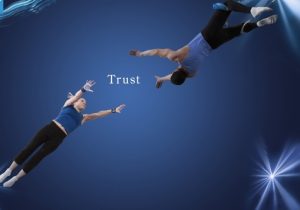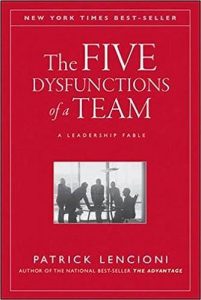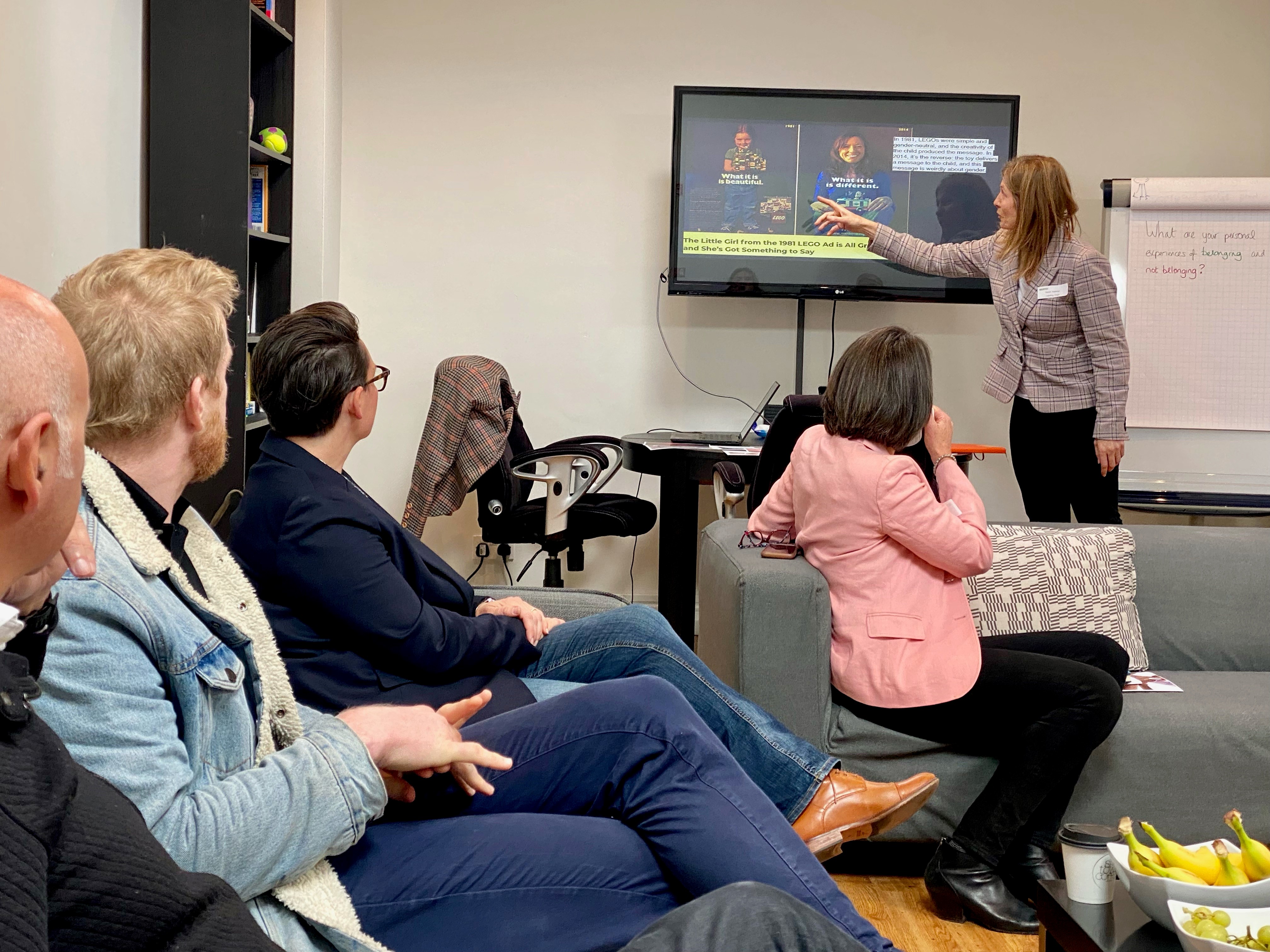Connect with us on LinkedIn for updates and the latest industry news
We begin with a WARNING….if you don’t give trust to others or have trust in others it is unlikely that others will trust you… Within Leading Edge’s Point of View around Leadership we see Trust and being a ‘Trust Centered’ as a key ingredient to Great Leadership. Without trust we may never reach our individual, collective or organisational potential.
I quite like Stephen Covey’s perspective on Trust, when talking about the ‘speed of trust’ he shares:
“work gets done with and through people…… and human connections are held together by trust”
If trust starts with you -..what do you do to build opportunities for trust to be gifted to you?
In her TED Talks on ‘Trust’ and ‘Institutions’ Rachel Botsman (Oxford University Lecturer and expert in this field) references the ‘Trust Leap’. In Covey’s quote above, trust is the glue that bonds people and in Rachel’s works trust is what helps people ‘LEAP’ from certainty to uncertainty.

Creating the glue that bonds people and building the confidence to leap is often a challenge of new leaders entering into established teams or established leaders bring about change (new product development, business restructures etc).
We are continually asking people to leap faster and higher than ever before, so how can we make this leap seem less scary. To use Rachels words – how do you help people build a confident relationship with the unknown, what is your Trust Stack? I have some thoughts on this:
- Build faith in you – having clarity of identity (see blog 1..)
- Be Vulnerable – share what you can of you (leak parts of your world)
- Be Authentic – be you and no one else (see fraudulent behaviours below)
- Build Social Trust – create trust between people (social investment in others)
Taking a leaf from the sporting book
Do you have a ‘Leadership Philosophy’, have you written this down, does it include trust as an element? In his work on ‘Serial Winning Coaches’ Sergio Lara-Bercial (Research and Reader in Coaching at Leeds Becket University, UK) found that the most successful ones had a well articulated ‘Coaching Philosophy’ of which Trust featured as a core value.
The behaviours of these coaches were firmly anchored by a philosophy consisting of 3 elements:
- The athlete as the Compass – if it doesn’t benefit the athlete it shouldn’t happen
- A high Moral Stance – key values which included respect, honesty, trust, loyalty
- Relative work-life balance – maintained positive personal life along with the job
Noticing its Presence and absence
What do you notice when you see trust? (observations)
- True engagement – listening to/hearing of stories being told
- Full Collaboration – sometimes at the expense of personal KPI’s
- Innovation Lead – people see opportunity for betterment (it’s safe to try**)
- Team Focused – investing in collective goasl
** its safe to try – links to our view on ‘Fast Fail’ check out next week’s blog on this.
What do you notice when you see when trust is missing? (observations)
- Withdrawal of services – sometimes very subtly over time
- Work to rule – I’m doing my job and looking after my KPI’s
- Adoption of status quo – change is bad
- Silo working – self serving behaviours
Trust and Dysfunction
Patrick Lencioni Author of ‘The 5 Dysfunctions of a Team’ has an intriguing perspective in this space. He proposes that trust is the foundation on which teams are built and that all truly performing teams have as their foundation ‘trust’ – built from leaders ‘going first’ and being vulnerable sharing their challenges.

In its absence team members would hesitate to ask for help, hide weaknesses and avoid team activities. They would often hold grudges, jump to conclusions and fail to recognise skills within others. Have you noticed any of these signs within your environment?
Where trust was present team members felt safe to speak up, would help each other and would leverage the strengths of the team. They would ask for help, accept questions as positive curiosity and not negative challenge, offer feedback and apologies (progress over politics).
(Those working with Lencioni model often cite the value of having a ‘Personal Playbook’ something that you share overtime with your team. This playbook is a varied collection of stories relating to who you are, where you are from, how you arrived here and why you do what you do (why you do it this way). Perhaps consider building a shareable playbook of your personal history for your team and see what impact this has on cohesion and effectiveness?)
The Curveball of Trust
If trust is withheld you may see ‘fraudulent’ behaviours…. those that are intended to display trust but are a cover story for dis/mistrust
I’ve coined Five F’s of Fraudulent Behaviour:
- Fake Allegiance – to team members, leaders, goals
- False Respect – for others and ways of working
- Fragile relationships – based on mistrust
- Focus on personal gain – their agenda at the expense of others
- Filtered insight – withholding information of value to others
These are toxic behaviours and if unmanaged will lead to dissatisfaction and deterioration in outcomes.
In all of this we must recognise the following:
- Trust is often bestowed, not earned (but you need to build capital)
- Trust is personal to the individual (seen and felt differently)
- Trust is contextual to the situation (because trust exists in one space if may not in another)
‘Trust-formation’ must come before any transformation or change. No one arrives in a leadership role with trust ‘given’. Consider deeply and carefully the steps you need to take to create situations of trust. It is something that grows with you and your performance (consistent and not fraudulent) over time. Trust does not come with a title, it comes through actions.
by Kurt Lindley




